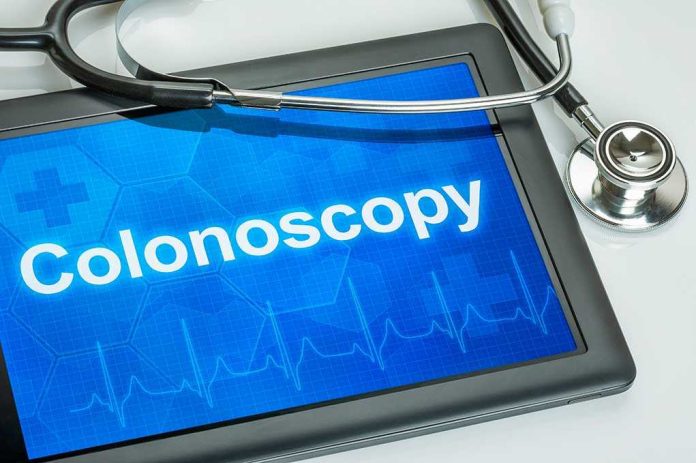
A new AI-powered stool test threatens to transform the landscape of colorectal cancer screening, challenging the necessity of traditional, invasive colonoscopies.
Story Overview
- AI stool test detects 90% of colorectal cancers, nearing colonoscopy accuracy.
- Potential to replace or supplement invasive colonoscopies, increasing accessibility.
- UK government supports trials, aiming for early adoption.
- Research in advanced stages; regulatory approval pending.
AI Revolutionizes Cancer Screening
In a promising development for colorectal cancer screening, recent studies reveal that an AI-powered stool test can detect up to 90% of colorectal cancers. This non-invasive method analyzes gut microbiota at the subspecies level, offering diagnostic precision comparable to colonoscopy. The potential for this test to replace or supplement traditional methods could increase screening rates, particularly among those reluctant to undergo invasive procedures.
The University of Geneva and Geneva University Hospitals are spearheading clinical trials to validate these findings. The UK government, recognizing the potential impact, has announced support for this groundbreaking technology. As governments and health agencies explore cost-effective, scalable solutions, this AI-driven approach represents a significant step forward.
Key Developments and Stakeholders
The UK government, alongside healthcare entities like the NHS, is backing trials of this new diagnostic technology. The trials aim to assess the test’s performance in real-world settings, with a focus on non-invasive cancer detection. Researchers from the University of Geneva emphasize the test’s potential applicability beyond colorectal cancer, highlighting its broad diagnostic capabilities.
Primary stakeholders include researchers, healthcare providers, and regulatory bodies. While the test is not yet widely available, the ongoing trials and government support indicate a strong push towards integration into routine clinical practice. Regulatory approval and further validation remain key steps before widespread adoption.
Potential Impact on Healthcare
The introduction of this AI-powered stool test could lead to significant cost savings for healthcare systems, reducing the resource burden associated with endoscopy services. By increasing screening uptake, particularly in underserved populations, this innovation promises improved early detection rates and survival outcomes for colorectal cancer patients.
While the test shows high accuracy for cancer detection, its ability to identify precancerous polyps is less robust compared to traditional colonoscopy. This limitation highlights the need for continued clinical validation and potential adjustments in screening protocols to ensure comprehensive cancer prevention strategies.
Sources:
UK Government announcement on bowel cancer diagnostic technology
StudyFinds on AI stool test research
Harvard Health on new screening methods
SciTechDaily coverage of AI stool test research




